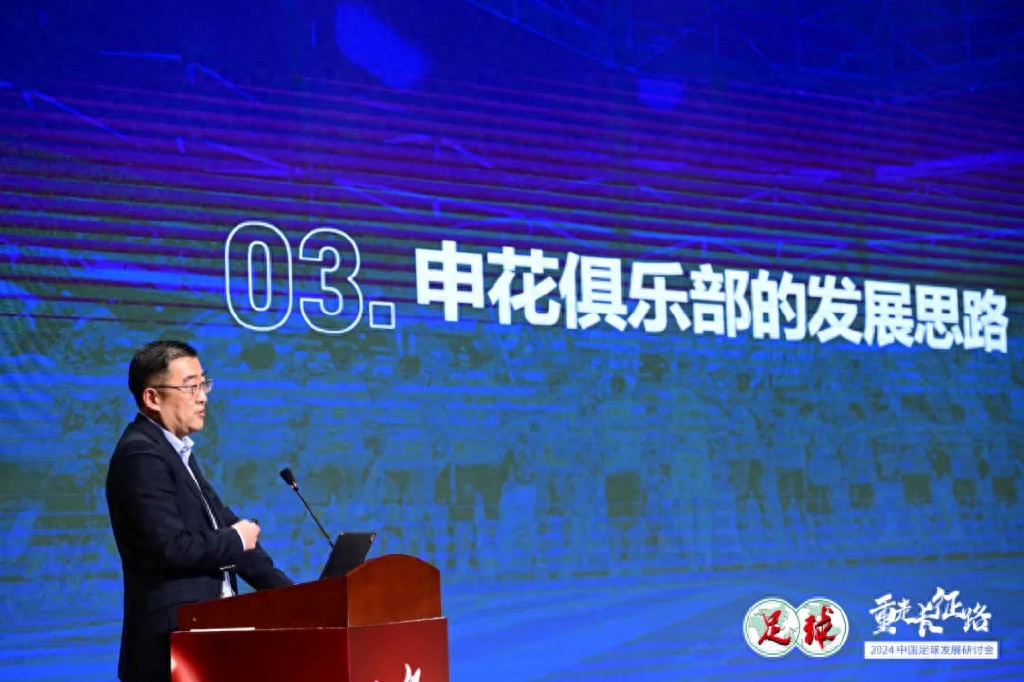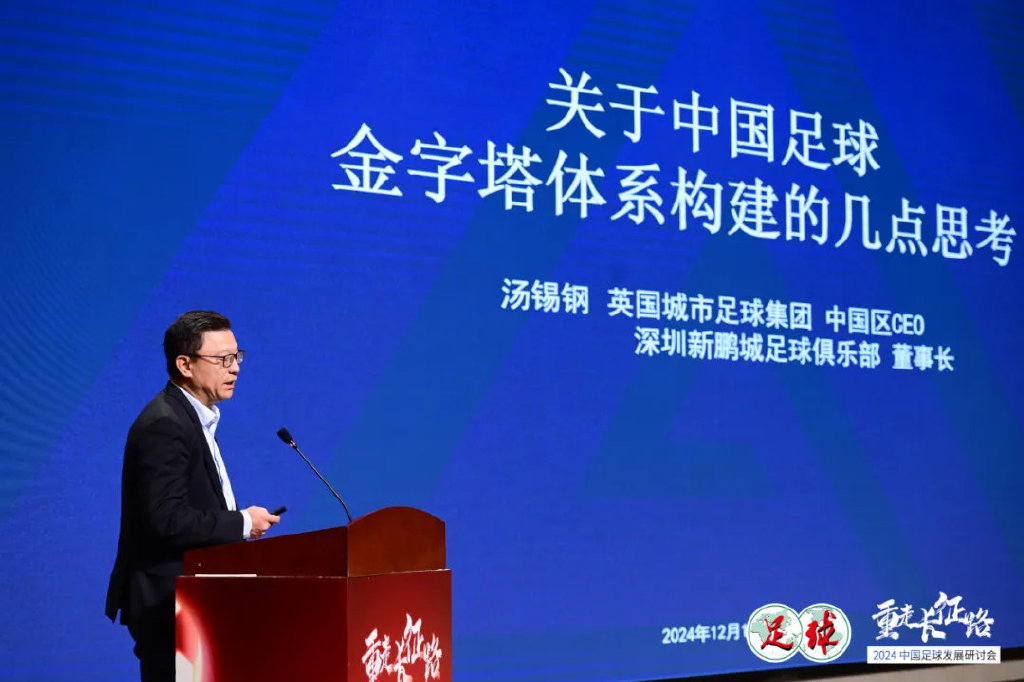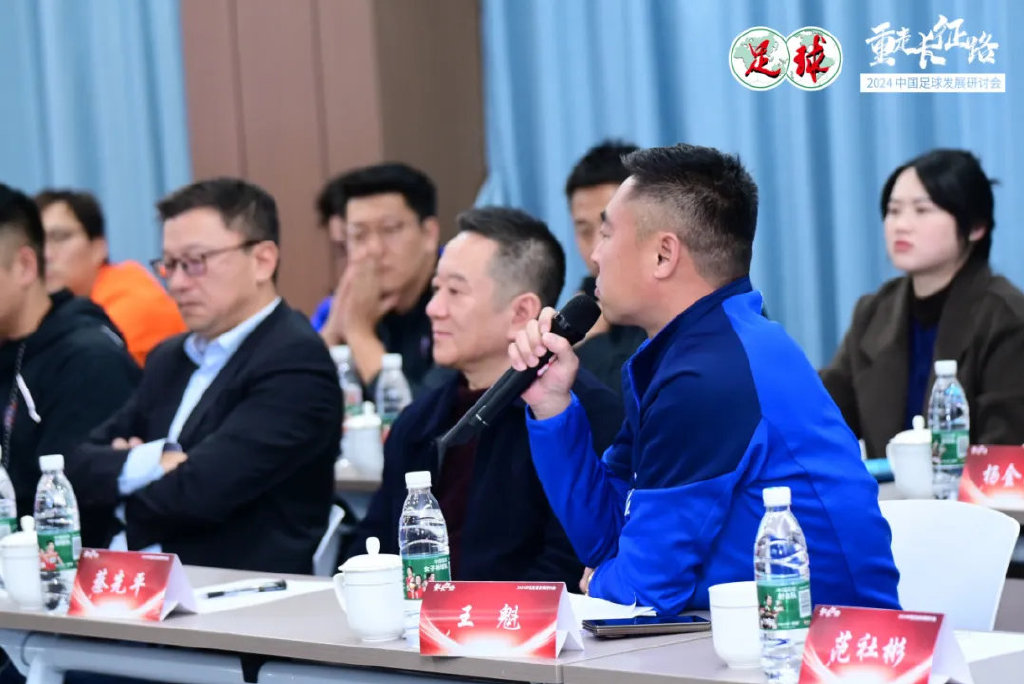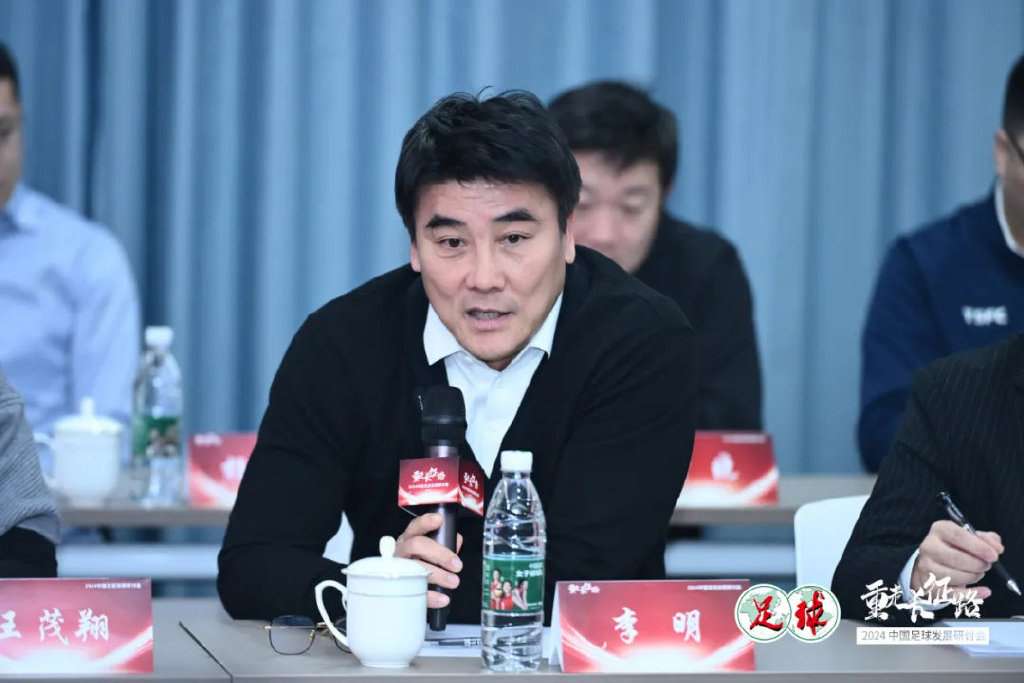The Road to Share Reform of China's Professional Clubs: Can You Go or Not to Go? How to go?

Reporter Lu Mi reports At the China Football Development Seminar held on December 17, Song Kai, Chairman of the Chinese Football Association, had an in-depth discussion on the future development of professional leagues with investors and senior executives of various Chinese Super League clubs and a number of Chinese League A clubs, as well as representatives of many local football associations. In the context of the country's vigorous development of football, improving the quality of China's professional football league is fundamental, and professional clubs are the core of the fundamental.
In recent years, there have been a lot of equity reforms in professional clubs, and many investors and club management have also had relevant experience in the meeting. They said that the support of the government is necessary, and under the background of the government's attention, if the club wants to live better, it must respect the rules, abide by the rules, grasp the management efficiency, business ability, and find a way to survive.

The development of the Chinese professional football league in recent years has not been satisfactory.
From the perspective of competition, with the departure of big-name coaches and foreign aids, the overall level of competition and game viewing have declined. From the perspective of operation, the economic benefits generated by leagues at all levels have been greatly reduced, and the survival of clubs has become more and more difficult year by year. Because of historical debts, there are not a few clubs that fell before or during the share reform. The survival of professional clubs is the factor that has the greatest impact on the quality of the league, and it has also become a core problem for Chinese football. At the China Football Development Seminar, the survival and development of professional leagues was one of the important topics, and the senior management of various clubs participated in the discussion extensively.
"The first lesson we had in the AFC class was that whatever you do has to be fully supported by the local government." Li Ming, general manager of the Guoan Club, said in an interview with this newspaper.
Before the epidemic, most professional football clubs were private investors, of which real estate-based investors accounted for the majority, and these investors have withdrawn in the past two or three years, and now the survival of most clubs is inseparable from the support of the local government.
In the top eight of the 2024 Super League, Shanghai Port, Shanghai Shenhua, Chengdu Rongcheng, Shandong Taishan, including Zhejiang and Henan, can all be classified as state-owned enterprise clubs; Tianjin Jinmen Tiger is essentially a government trusteeship; Although Beijing Guoan is a private enterprise club, in fact, the operating funds for the 2024 season mainly come from the support of state-owned enterprises and sports bureaus.

Among them, Shanghai Shuangxiong and Chengdu Rongcheng belong to a single state-owned enterprise investment; Shandong Taishan, Zhejiang Club and Henan Club belong to a number of state-owned enterprises to invest together; Tianjin Jinmen Tiger is under the trusteeship of the Sports Bureau, led by the government, and jointly invested by a number of state-owned enterprises.
The representative ones are Shanghai Shenhua Club and Henan Club. The city positioning of Shanghai Shenhua Club is: a special symbol of high-quality urban development, the core content of high-quality urban life, and a practical scenario of high-efficiency urban governance. From greenfield to long-term, Shenhua FC has experienced a very important historical moment, and this positioning has not changed, and this season has been quite stable, and it has been a long battle with Harbour for the title, and finally finished second in the league. In terms of Henan Club, after the complete withdrawal of Jianye Group, an investor for more than 20 years, the club has undergone three share reforms in three years, one of which failed, and the decisive factor for its survival is the attention of the Henan Provincial Government.
Among the 8 clubs ranked at the bottom of the 2024 Chinese Super League, Shenzhen Xinpeng City is a relatively special existence and is currently the only foreign-funded club in the Chinese Super League. However, the relocation from Chengdu, Sichuan Province to Shenzhen at the beginning of the year was actually supported by some funds from the Shenzhen local government.

Qingdao West Coast, Meizhou Hakka, and Nantong Zhiyun Clubs, although they are private enterprise clubs, have been supported by local governments throughout the year. Qingdao West Coast has the support of the municipal and district governments, especially the West Coast New Area, which hopes to make the Qingdao West Coast Club a cultural landmark in the new area. Qingdao Manatee, a club in the same city on the West Coast, has also received some financial support from the city, but only to a limited extent.
Wuhan Three Towns is a private enterprise club, which created the "Kaiserslautern miracle" in the post-Jinyuan football era, but since September last year, private investors have announced that they will stop injecting capital, and since then the local sports bureau has provided funds to maintain daily operations. Recently, with the support of the local government and the Sports Bureau, the club has gradually completed the settlement of debts, and the 11 transfer registration bans have been cleared, and the future will develop in the direction of the Sports Bureau continuing to support the bottom and the local Football Association supervising.
Cangzhou Lion Club belongs to the mixed reform of private enterprises and state-owned enterprises, when it first moved to Cangzhou, it invested more in the introduction of reinforcements, which also benefited from the smooth share reform at that time. However, due to the change of government and the epidemic, some relevant support policies have not been implemented, which is also the main reason why the club has fallen into an existential crisis.
The two clubs Yunnan Yukun and Dalian InBev that have successfully overtaken in the 2024 season, the former is a single equity of a private enterprise, and the first thing after the overtaking is to seek support from the provincial, municipal and district governments. Dalian InBev is also a private enterprise club, but with the support of provincial and municipal governments, and at the same time, Dalian City is fully promoting the club's investment promotion, and the future survival situation is relatively optimistic.


At present, the survival mode of the Chinese Super League club is basically three types: state-owned enterprises, trusteeship, government capital investment + investment guarantee. After the government's "support", the club can be regarded as surviving, but how to live better is a very real problem. At the China Football Development Seminar held by this newspaper, many club executives were deeply touched by this. Li Ming, general manager of Beijing Guoan, put it bluntly: "We rarely talk about the future direction of professional clubs. Football is inseparable from money, don't avoid the problem of money, don't avoid the problem of the economy. ”
For example, Shanghai Port and Shanghai Shenhua are clubs invested by a single state-owned enterprise, and their own funds are very stable, so it is not a problem to ensure the operation of the club. Jiushi Group, which has rich experience in sports industry management, has taken over the Shenhua Club since taking over, and the Shenhua team has been very solid all the way and has played steadily this season.
Gu Jiqing, chairman of Shenhua Club, talked about the sequence of the four key tasks of Shenhua Club: "The four key tasks are competitive level, management efficiency, management ability and brand value. As a company, theoretically, the management ability should be put first, but starting from the positioning and reality of Shanghai Shenhua Football Club, considering the expectations of the fans, we finally decided to put the competitive level first. ”
After Gu Jiqing's speech, representatives of small and medium-sized clubs also expressed their opinions. The development of Shanghai Shenhua only represents one type of club, after all, whether it is Shenhua or the seaport, including Chengdu Rongcheng, the club can get stable and sufficient funds only by relying on a single state-owned enterprise investment, but it is not yet possible to achieve profitability in the club's operation. Individual clubs still have financial problems after the share reform, such as Henan Club, 3 years after 3 times of share reform, each time is very difficult, the difficulty is not the share reform itself, but after the government backs, the club's self-hematopoiesis put forward clear requirements, issued operational indicators, that is to say, the bottom can only "save lives", does not mean that you can "save the poor" at any time. Henan Club has reduced its budget year by year after the share reform, precisely because there is more consideration in self-hematopoiesis.

All parties have been calling on the Chinese Football Professional League to strive for more funding and policy support, and also calling on clubs to strengthen their operating capabilities, but in the process, there will be practical problems of one kind or another. How to implement policies and financial support directly affects the survival of the club. For example, Shandong Taishan survives in the context of the support of three state-owned enterprises, but one of the local state-owned enterprises has a serious shortage of matching funds, which is enough to plague the development of the club.
Changchun Yatai is also a member of the state-owned enterprise club, which has a long period of salary arrears this season and is also facing greater financial problems; Cangzhou Lions Club is currently mired in difficulties in share reform, and it has always been difficult for Cangzhou to fulfill the policies it supports; Although Qingdao Manatee Club also has financial support from the city, it is not very strong, and it has nothing to do in terms of operating the team's title sponsor, chest advertising, back advertising and armband advertising.
While state-owned enterprises have become the mainstream of club investment, they have put forward higher requirements for professional clubs in management, and Gu Jiqing, chairman of Shenhua, said: "We are more standardized, subject to more constraints, and have very limited fault tolerance, so management efficiency is a very important issue." ”
State-owned enterprise clubs have more complex procedures in terms of fund allocation, asset review, and club management processes. In the current process of club operation, state-owned enterprises show more functions of support and support, and the development of professional leagues must return to the market. How to make professional clubs and professional leagues in the new era present a diversified and healthy form while maintaining competitiveness, and the control of laws and respect for rules are particularly important.


Wonderfulshortvideo
Things you really love to see


Neymar highlights neymar edit neymar lamine yamal celebration


Arsenal 1-0 chelsea havertz goal


Ahead of his 100th cap, Sir Keir Starmer had this message for Maro Itoje…


yamal goal yamal instagram yamal dribble barcelona 2-1 albacete yamal highlights yamal edit


casemiro goal casemiro assist casemiro 6 7 celebration


"Can I just start off by saying I want to congratulate Maro on 100 tests... He's a great bloke and a great player."








 Links
Links
 Contact
Contact
 App
App


